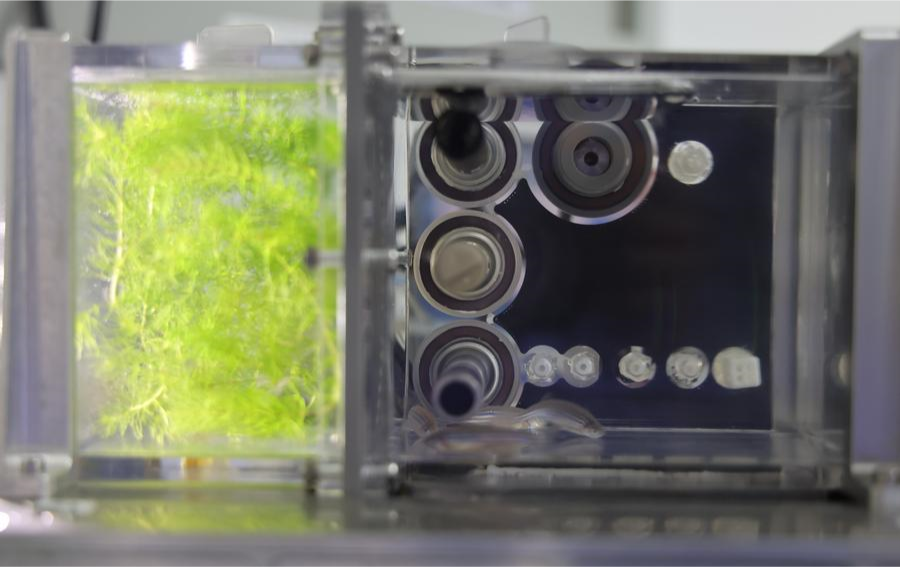
 0 Comment(s)
0 Comment(s) Print
Print E-mail Xinhua, May 20, 2024
E-mail Xinhua, May 20, 2024
This photo taken on April 25, 2024 shows a backup version of the aquatic ecosystem. [Photo/Xinhua]
The four zebrafish kept on China's Tiangong space station, which is orbiting about 400 km above Earth, are currently in good condition, experts from the Chinese Academy of Sciences (CAS) said Sunday.
The experts revealed details of the latest developments concerning the country's first in-orbit aquatic ecological research project at a public science day event in Beijing.
On April 25, along with the three astronauts aboard the Shenzhou-18 manned spacecraft, four zebrafish and four grams of goldfish algae went into space, and these have been used to establish a self-cycling aquatic ecosystem in orbit, making a breakthrough in the field of raising of vertebrates in space.
According to Zheng Weibo, a researcher at Shanghai Institute of Technical Physics of the CAS, the astronauts have managed to collect water samples twice and have replaced the fish food box once. They found that the zebrafish were showing directional behavior anomalies, such as inverted swimming and rotary movement, in the microgravity environment on Tiangong.
Using the likes of water and fish egg samples, among others, scientists will carry out research on the impact of the space environment on the growth, development and behavior of vertebrates, as well as the material cycle of confined ecosystems in space, Zheng said.
Zebrafish, as a model animal with genetic similarity to humans, can be used for research on many human diseases, said Wang Gaohong, a researcher at the Institute of Hydrobiology of the CAS.
"Meanwhile, like astronauts, zebrafish need to pass through rounds of selection to become 'aquastronauts,'" Wang added.
Go to Forum >>0 Comment(s)